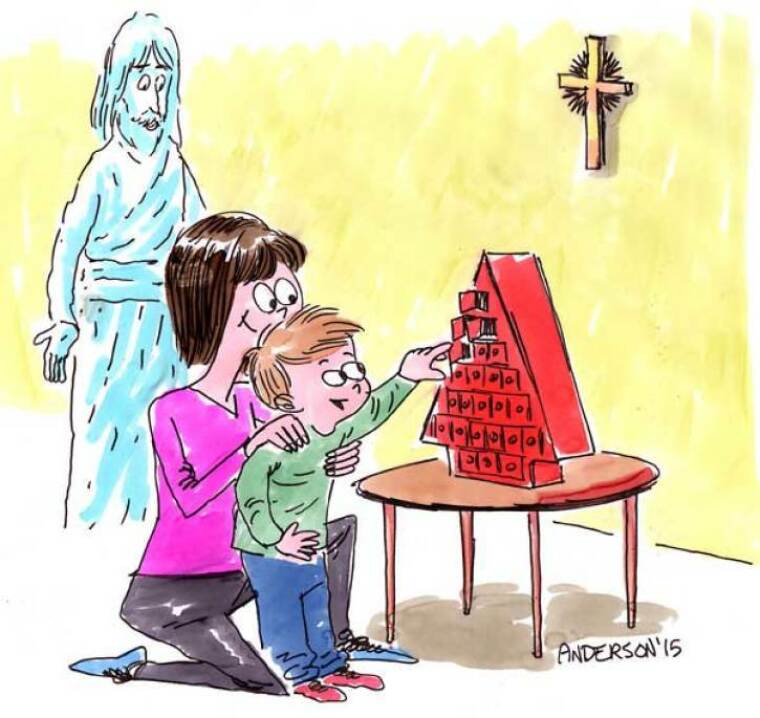Advent and the coming of the King

The King has come. He will come again. The meaning of Advent is worthy of our reflection, and here's something to help.
Last Sunday marked the start of the Advent season. No, officially, it's not yet Christmas. It's Advent.
I've talked about Advent a lot on BreakPoint the past few years, not because I'm a Scrooge but because these days of preparation are among the most important days in the Christian calendar, and are a wonderful way to foster a Christian worldview in our hearts and minds.
For nearly two millennia, Advent has called Christians to reflect on life between the two bookends of God's redemptive acts in Christ: His Incarnation and His coming again in glory to judge the living and the dead.
During Advent we recall God's faithfulness to His people: Even though Israel failed to keep the covenant made at Sinai and renewed on several occasions afterwards, God always intended to keep the promise He made to the father Abraham that "through your offspring shall all the nations of the earth be blessed." That offspring was, of course, Jesus Christ.
Millennia of reflection on God's faithfulness has produced many great hymns, but none greater than that hymn most identified with Advent, "O Come, O Come, Emmanuel."
Its lyrics are taken from what are called the "O Antiphons." An antiphon is a phrase or short sentence that is recited or sung either before or after a psalm or other passage of scripture.
One thing that sets the "O Antiphons" apart is their antiquity. The Roman philosopher Boethius, who lived in the late fifth and early sixth centuries, alludes to them in his writings. As one scholar put it, "in some fashion the O Antiphons have been part of our liturgical tradition since the very early Church."
Another thing that sets them apart is how the Church has employed them. Since at least the eighth century they have been reserved for the week preceding Christmas Eve, December 17 to 23.
The O Antiphons and the hymn they produced walk us through all of salvation history. Each one includes both a Messianic title that reveals something of Christ's relationship to creation, Israel, or the plan of salvation. And each includes the invitation, come, which reminds us of our helpless state and how we are in need of divine rescue.
Christ is the Wisdom of God, upon whom the Spirit of wisdom and understanding, counsel and strength, and knowledge and fear of the Lord rested (Isaiah 11). He is Adonai, the Lord our lawgiver and judge, who will save us (Isaiah 33). He is the root of Jesse's stem, whom the Gentiles will seek out and whose dwelling will be glorious (Isaiah 11). He is the Key of David, who unlocks the doors of our prison. He is the Radiant Dawn, the light that shined upon the people who dwelt in darkness (Isaiah 9).
And of course, he is Emmanuel, God with us (Isaiah 7).
These are not messages we are likely to encounter on the 24-hour Christmas music stations. So appreciating the enormity of the Incarnation requires silence and meditation from us.
Read more about Advent on The Christian Post.